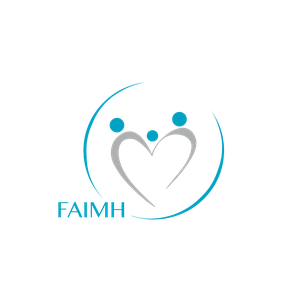Below is our interview with Allison Parish, IMH-IV. She is a partner and leader in the infant mental health field!
NB: Allison, the FAIMH Board is so thankful for the funds that the Florida MIECHV Initiative was able to share with us in 2018 to help kick-off the Florida Infant Mental Health Endorsement (FIMH-E) effort. You’ve also stepped up personally and volunteered to be part of our Leadership Cohort for FIMH-E and you’re now officially Endorsed as a Level IV-Policy Mentor! As a past-president of FAIMH, your commitment was no surprise, but I know you’ve got strong feelings about the work we’re doing together. What’s motivating you?
AP: I’ve always been interested in investing in systems not just programs. And I feel like workforce development in infant mental health here in Florida is really important. As a mom of twins (now 8 years old), I also know what it’s like to manage stress while parenting! But it has really been my work coordinating and supporting Florida’s home visiting programs that has inspired me most. I just feel like the effort to support professionals at all levels who do this work is essential; we’re such a big state…it is time we get serious about growing and supporting our IMH workforce.
NB: You do have an interesting perspective these days, given your oversight of Florida’s MIECHV home visiting programs and the Early Childhood Comprehensive Systems grant. Some organizations use masters level professionals and others rely on paraprofessionals, but all serve families at risk. I’d be interested in your perspective about what folks need to do this kind of frontline work…
AP: First of all, I feel like anyone working with kids and families needs to know more about infant mental health. Knowing more about the science of social and emotional development helps anyone working with kids of any age. And you don’t need to be a therapist to talk to a parent about their own history in life and to help them sort out ways to focus on their child’s wellbeing. If we give empathetic people good training and ongoing reflective supervision, they can do amazing things.
NB: Yeah, that’s one thing about the Endorsement system—there’s a focus on folks getting reflective supervision to support them in managing the work—and in not burning out. Speaking of burnout, you are one of those people who wears a bunch of hats! I know one thing that keeps you going is having a job in which you get to learn and do new things. Is there anything you’re working on these days that’s been particularly interesting?
AP: Yes! While we are great at screening primary caregivers for depression, we’ve struggled to connect families with services when they have a positive depression screen. This could be a lack of available resources or hesitation on the part of the parents. We were hearing that home visitors felt stuck when they knew there was a depressed caregiver and they didn’t think they could do anything about it. In 2018, we partnered with Dr. Darius Tandon at Northwestern University who has created a really helpful curriculum for supporting families, particularly when there are concerns about depression. It is called the Mothers and Babies Program. Mothers and Babies is an evidence-based, interactive program with lessons and activities geared towards promoting healthy mood, parent-child bonding, and strategies for coping with stress. What we like about it is that the home visitors can use these lessons and activities to help caregivers develop more awareness of their feelings and increase their coping skills. It is not a therapeutic intervention, but it can prevent symptoms from escalating and, in some cases, the insight developed through the program helps parents realize they need additional services from a clinician. Our staff are really pleased to have this new tool in their toolbox, and we know it is benefiting the parents and children we serve. They were so excited when they had the opportunity to meet and talk with Dr. Tandon at the recent First 1000 Days Summit.
Dr. Tandon told me recently, “I am delighted to see Mothers and Babies being used throughout Florida as a tool to promote stronger attachment between mothers and their infants, which is foundational to promoting children’s socio-emotional development.” In 2019, we will continue to promote infant mental health through partnerships like the ones with FAIMH and Northwestern University.
NB: Allison, thanks for telling our membership about this tool and the work you are doing. And thanks again for your ongoing support of FAIMH.


